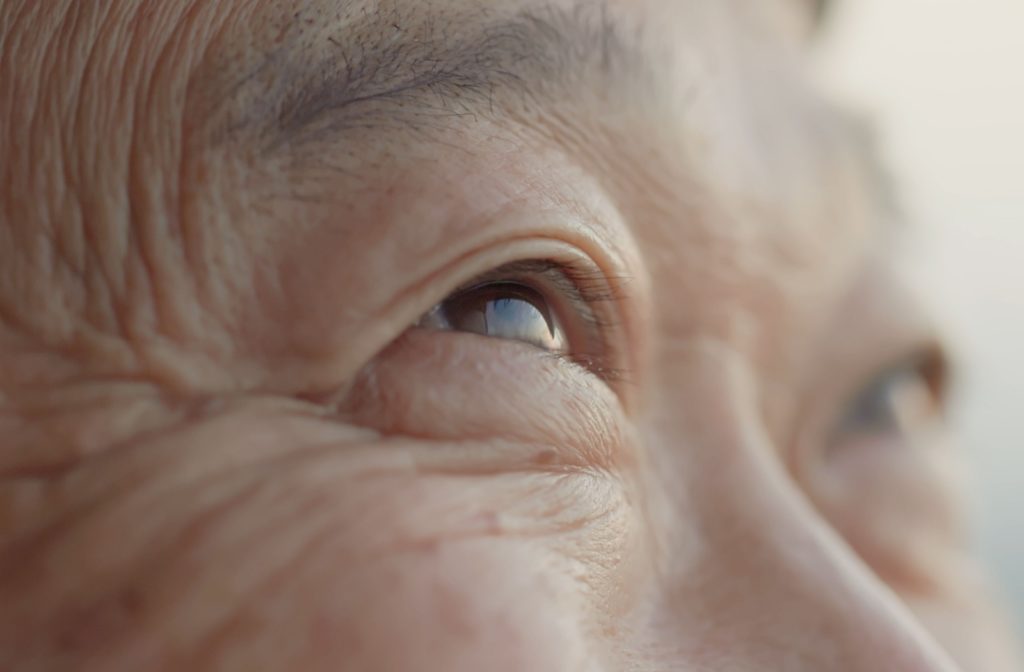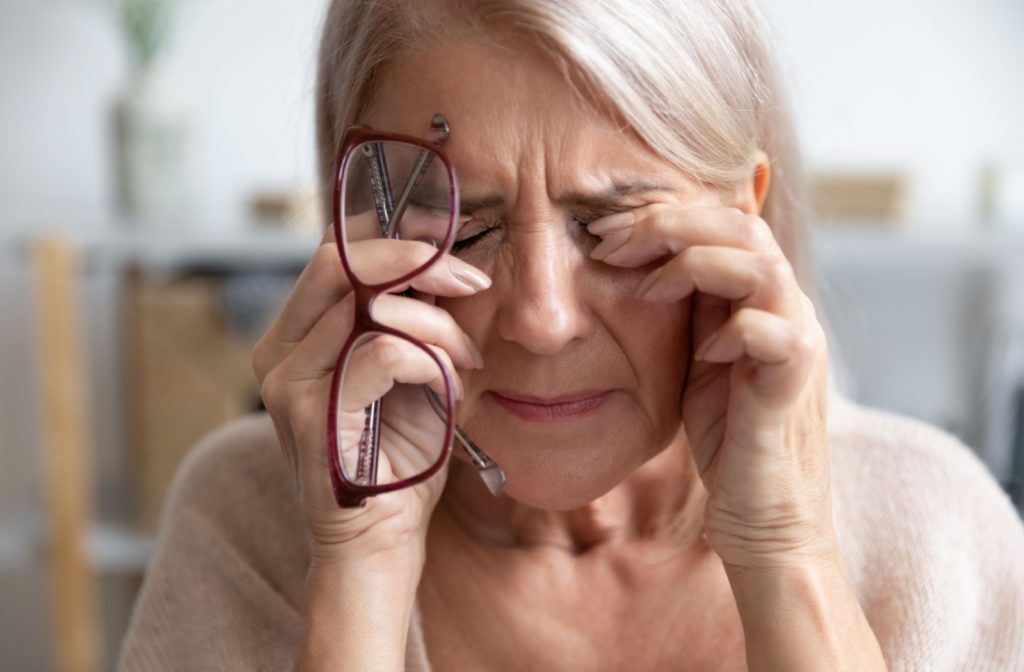As we age, our bodies go through many changes—and our eyes are no exception. While aging is a natural part of life, certain changes in vision can signal underlying issues that require attention.
How do you know if your eyes are showing troubling signs of aging? If you’re experiencing sudden blurry vision, persistent swelling, frequent headaches, bloodshot eyes that won’t clear, increased light sensitivity, speckled shapes or flashes of light, difficulty seeing at night, loss of peripheral vision, or double vision, these could be warning signs of aging eyes that require attention.
1. Sudden Blurry or Distorted Vision
If your vision suddenly becomes blurry, wavy, or distorted—like straight lines looking curvy—it could be more than just eye strain. This could be a sign of serious conditions like a detached retina, glaucoma, or diabetic retinopathy. Don’t wait—reach out to your eye doctor immediately.
2. Persistent Swelling Around the Eyes
Swelling could result from allergies, infections, or other medical issues. While minor swelling can happen after a minor injury or reaction, ongoing swelling might be linked to conditions like blepharitis, a blocked tear duct, or Graves’ disease.
3. Frequent or Severe Headaches
Headaches behind the eyes, especially if they linger or aren’t relieved by over-the-counter medication, could point to an eye condition. Causes include angle-closure glaucoma, eyestrain, or corneal issues. If headaches are becoming a regular issue, get them checked out.
4. Red or Bloodshot Eyes That Won’t Go Away
Red eyes can be caused by allergies, irritants, or a range of eye conditions like conjunctivitis, glaucoma, or uveitis. If you notice persistent redness—especially if it’s accompanied by pain or vision changes—don’t ignore it.
5. Increased Sensitivity to Light
While mild light sensitivity is normal, severe or prolonged light sensitivity could signal an issue like cataracts, migraines, or even a corneal abrasion. If bright lights are uncomfortable for you, schedule an eye exam to rule out underlying problems.
6. Sudden or Increased Floaters
Floaters—those little specks or cobweb-like shapes you see when looking at a blank wall—are usually harmless. But if you notice a sudden increase in floaters or experience them with flashes of light, this could point to a detached retina or other serious eye conditions. Contact your eye doctor if you’re unsure.
7. Difficulty Seeing at Night
Struggling to see in dim lighting or at night? This could indicate presbyopia, cataracts, or even glaucoma. If your vision changes are making nighttime driving, reading, or adjusting to low light more challenging, it’s time to schedule a visit.
8. Seeing Flashes of Light
Seeing sudden flashes of light—whether they look like lightning, stars, or flickering lights—could mean something is happening at the back of your eye. Causes can include a detached retina, migraines, or post-surgery complications. If these flashes come on suddenly, get medical attention quickly.
9. Loss of Peripheral Vision
If you’ve noticed blind spots or have trouble noticing objects out of the corner of your eye, this could be an early sign of glaucoma. Glaucoma can lead to irreversible vision loss if left untreated, so early detection is vital.
10. Double Vision (Diplopia)
Seeing two images instead of one—especially if it comes on suddenly—shouldn’t be ignored. Double vision can stem from cataracts, misalignment of the eyes, neurological conditions, or other health issues. It’s important to have your vision evaluated to get the right diagnosis and treatment.

What Age Do Eyes Start to Deteriorate?
Eyes can begin to show signs of age as early as your 40s, with presbyopia being one of the most common changes. By the time you reach your 50s or 60s, other age-related changes, such as cataracts, glaucoma, and macular degeneration, become more common. While these changes are a natural part of aging, regular eye exams can detect them early and allow for effective treatment.
What Are the Dangers of Not Caring for Your Eyes?
Ignoring symptoms of aging eyes or skipping regular eye exams can lead to serious consequences, including:
- Progression of treatable eye conditions like glaucoma or cataracts.
- Permanent vision loss due to delayed diagnosis or treatment.
- Difficulty maintaining independence and quality of life.
Your vision is valuable—taking care of it now can prevent unnecessary complications later.
Why Early Detection Matters
By recognizing and addressing eye health issues early on, you can prevent serious complications. Some eye conditions are treatable when caught in their early stages. That’s why prioritizing regular eye exams is essential!
How to Reverse Aging Eyes Naturally
While you can’t completely reverse the natural aging process, certain habits can support eye health and potentially slow changes associated with aging:
- Eat a nutrient-rich diet: Foods like leafy greens, fish rich in omega-3s, and carrots can support vision.
- Stay hydrated: Proper hydration supports tear production and reduces dry eye symptoms.
- Protect your eyes from UV rays: Wear sunglasses outdoors to prevent UV damage.
- Exercise regularly: Good circulation supports overall eye health.
- Take regular breaks from screens: Follow the 20-20-20 rule to reduce eye strain.
These simple lifestyle adjustments can make a significant impact on your eye health over time.
Book Your Annual Eye Exam in Bonita Today!
Your eye health is vital—whether you’re noticing changes in your vision or simply want to stay ahead of age-related changes. Regular eye exams are the best way to monitor your vision, catch problems early, and maintain your ocular health.
Don’t wait to prioritize your vision. Schedule your annual eye exam in Bonita, California, today!


